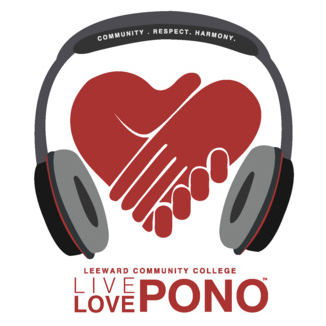
Take a deep dive into our award-winning podcast where we engage with others in the UH ‘Ohana and our community.
Committee Members
Please contact any member if you have questions, concerns, need support, want to talk story, or have ideas for future events.
Corey Adler
Sociology and Women’s Studies
cadler@hawaii.edu
Lexer Chou
Student Life Coordinator
achou@hawaii.edu
Laurie Libarios
Counselor
lauriel@hawaii.edu
Lori Lum
Mental Health Counselor
leetalk@hawaii.edu
Syreeta Washington
Counselor
syreetaw@hawaii.edu
Gwen Williams
Substance Abuse Counseling Coordinator
gwenw@hawaii.edu
Kalei Ruiz
Counselor
kalei.ruiz@hawaii.edu
CONTACT INFO
Email: lovepono@hawaii.edu
Instagram: lovepono
Youtube
This error message is only visible to WordPress admins
Error: There is no connected account for the user 17841400535917118.


Community Resources
Police, Fire, Ambulance: 911
Adult Mental Health Division: 1-800-753-6879
Poison Center: (800) 222-1222
Domestic Violence Shelters Hotline: 800-799-7233
Care Hawai‘i, Inc.: (808) 533-3936
Ho‘omau Ke Ola (Substance Abuse Counseling/Treatment): (808) 696-4266
Sex Assault Hotline: 524-7273
Sex Assault Trained Crisis Counselors: 808-524-7273
Crisis Hotline of Hawai‘i: 988
Domestic Violence Action Center
Domestic Violence Action Center’s Helpline Text: (808) 799-7233
Domestic Violence Action Center: (808) 690-6200
DVAC LGBTQ+ Advocate: @dvacpride
Email: dvac@stoptheviolence.org
Toll-Free Helpline: (800) 690-6200
Legal Services
Adult Services Branch of Family Court: (808) 538-5959
District Court – Oahu (Civil Division): (808) 538-5151
Hawai‘i State Coalition Against Domestic Violence Phone: (808) 832-9316
Email: info@hscadv.org
Hawai‘i Immigrant Justice Center (Legal Aid Society of Hawai‘i): (808) 536-8826
National Resources
National Suicide Hotline: 988
Crisis Text Line Text HELLO to 741741
Wai‘anae Community Resources
Wai‘anae Coast Comprehensive Health Center: (808) 697-3300
Wai‘anae Coast Community Mental Health Center: (808) 696-4212
Pu‘uhonua – Wai’anae Domestic Violence Outreach (Family PACT): (808) 700-7233
Hale Na‘au Pono–Substance Abuse Treatment: (808) 696-4211
Ho‘omau Ke Ola –Substance Abuse Treatment: (808) 696-4266
Leeward Oahu Family Guidance Center: (808) 692-7700